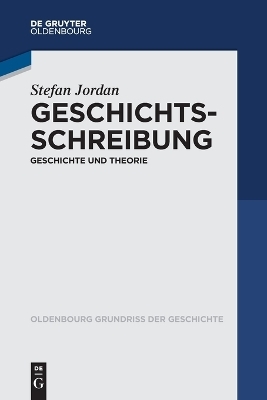
Sibling Action
The Genealogical Structure of Modernity
Seiten
2020
Columbia University Press (Verlag)
978-0-231-18041-2 (ISBN)
Columbia University Press (Verlag)
978-0-231-18041-2 (ISBN)
Stefani Engelstein argues that the sibling paradigm shaped the modern subject, life sciences, human sciences, and collective identities such as race, religion, and gender. Integrating close readings with panoramic intellectual history, Sibling Action presents a compelling new understanding of systems of knowledge.
The sibling stands out as a ubiquitous—yet unacknowledged—conceptual touchstone across the European long nineteenth century. Beginning in the late eighteenth century, Europeans embarked on a new way of classifying the world, devising genealogies that determined degrees of relatedness by tracing heritage through common ancestry. This methodology organized historical systems into family trees in a wide array of new disciplines, transforming into siblings the closest contemporaneous terms on trees of languages, religions, races, nations, species, or individuals. In literature, a sudden proliferation of siblings—often incestuously inclined—negotiated this confluence of knowledge and identity. In all genealogical systems the sibling term, not quite same and not quite other, serves as an active fault line, necessary for and yet continuously destabilizing definition and classification.
In her provocative book, Stefani Engelstein argues that this pervasive relational paradigm shaped the modern subject, life sciences, human sciences, and collective identities such as race, religion, and gender. The insecurity inherent to the sibling structure renders the systems it underwrites fluid. It therefore offers dynamic potential, but also provokes counterreactions such as isolationist theories of subjectivity, the political exclusion of sisters from fraternal equality, the tyranny of intertwined economic and kinship theories, conflicts over natural kinds and evolutionary speciation, and invidious anthropological and philological classifications of Islam and Judaism. Integrating close readings across the disciplines with panoramic intellectual history and arresting literary interpretations, Sibling Action presents a compelling new understanding of systems of knowledge and provides the foundation for less confrontational formulations of belonging, identity, and agency.
The sibling stands out as a ubiquitous—yet unacknowledged—conceptual touchstone across the European long nineteenth century. Beginning in the late eighteenth century, Europeans embarked on a new way of classifying the world, devising genealogies that determined degrees of relatedness by tracing heritage through common ancestry. This methodology organized historical systems into family trees in a wide array of new disciplines, transforming into siblings the closest contemporaneous terms on trees of languages, religions, races, nations, species, or individuals. In literature, a sudden proliferation of siblings—often incestuously inclined—negotiated this confluence of knowledge and identity. In all genealogical systems the sibling term, not quite same and not quite other, serves as an active fault line, necessary for and yet continuously destabilizing definition and classification.
In her provocative book, Stefani Engelstein argues that this pervasive relational paradigm shaped the modern subject, life sciences, human sciences, and collective identities such as race, religion, and gender. The insecurity inherent to the sibling structure renders the systems it underwrites fluid. It therefore offers dynamic potential, but also provokes counterreactions such as isolationist theories of subjectivity, the political exclusion of sisters from fraternal equality, the tyranny of intertwined economic and kinship theories, conflicts over natural kinds and evolutionary speciation, and invidious anthropological and philological classifications of Islam and Judaism. Integrating close readings across the disciplines with panoramic intellectual history and arresting literary interpretations, Sibling Action presents a compelling new understanding of systems of knowledge and provides the foundation for less confrontational formulations of belonging, identity, and agency.
Stefani Engelstein is associate professor and chair of the department of Germanic languages and literature at Duke University. She is the author of Anxious Anatomy: The Conception of the Human Form in Literary and Naturalist Discourse (2008) and coeditor of Contemplating Violence: Critical Studies in Modern German Culture (2011).
List of Illustrations
Acknowledgments
Introduction: The Sibling and Modernity
Part I. Recuperating the Sibling
1. Sibling Logic
Part II. Fraternity and Revolution
2. The Shadows of Fraternity
3. Economizing Desire: The Sibling (in) Law
Part III. Genealogical Sciences
4. Living Languages: Comparative Philology and Evolution
5. The East Comes Home: Race and Religion
Epilogue: Spawning Disciplines
Notes
Works Cited
Index
| Erscheinungsdatum | 13.03.2020 |
|---|---|
| Zusatzinfo | 18 b&w figures |
| Verlagsort | New York |
| Sprache | englisch |
| Maße | 152 x 229 mm |
| Themenwelt | Geisteswissenschaften ► Geschichte ► Geschichtstheorie / Historik |
| Geisteswissenschaften ► Philosophie ► Philosophie der Neuzeit | |
| Naturwissenschaften | |
| ISBN-10 | 0-231-18041-1 / 0231180411 |
| ISBN-13 | 978-0-231-18041-2 / 9780231180412 |
| Zustand | Neuware |
| Haben Sie eine Frage zum Produkt? |
Mehr entdecken
aus dem Bereich
aus dem Bereich
Russland, die Ukraine und der Westen
Buch | Softcover (2024)
De Gruyter (Verlag)
39,95 €
Geschichte und Theorie
Buch | Softcover (2024)
De Gruyter Oldenbourg (Verlag)
24,95 €
wie Irritationen historisches Denken anregen
Buch | Softcover (2024)
Kohlhammer (Verlag)
69,00 €


